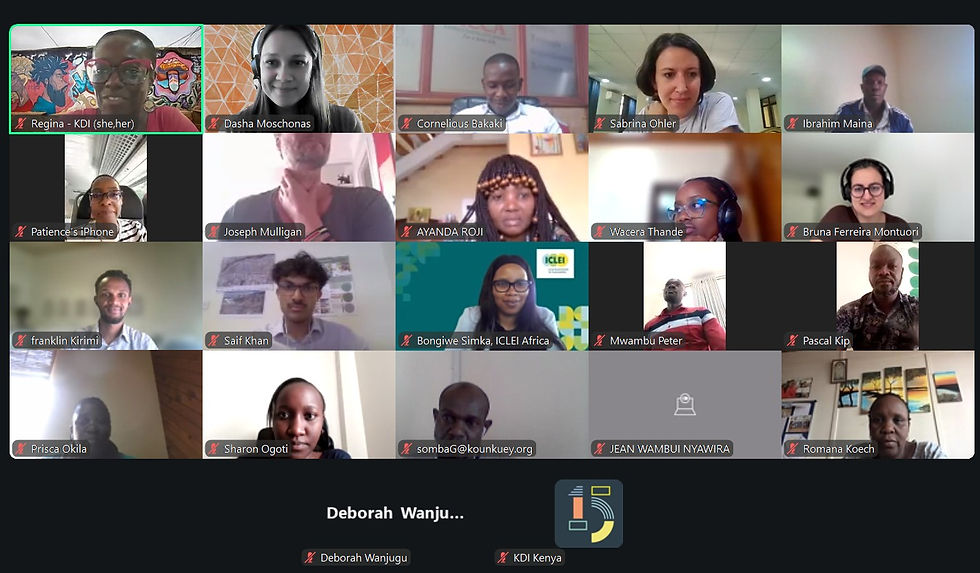A strategy to build resilience within informal settlements
- Jul 12, 2023
- 2 min read
Updated: Jul 26, 2023
Co-designing and building Nature-based Solutions with residents for water management
By Kezia Ojal
In a bid to enhance the resilience of residents to climate change and promote sustainable development in Nairobi's informal settlements, the KDI “Realizing Urban Nature-based Solutions” project team has adopted a community-driven approach. This approach utilizes co-design, community construction and management of Nature-based Solutions (NbS) to address challenges of water management. This helps to ensure that the implementation of NbS is people-centered, culturally appropriate, socially inclusive, and environmentally sustainable.
The NbS projects involve innovative, and sustainable solutions that harness the power of nature to address challenges in urban areas. The projects use natural systems and processes that create benefits for both people and the environment, such as improving water management, increasing biodiversity, and enhancing community spaces.
We recognize that residents of informal settlements possess a wealth of knowledge and experience in navigating the challenges of the areas they live in. Therefore, as a team we work closely with these communities to understand their needs and priorities, and to ensure that the NbS projects are co-designed and implemented in a way that prioritizes and meets the communities’ needs, as well as incorporates their insights.
One of the key ways that the we involve residents in NbS projects is through a "co-design" process, which brings together key stakeholders - community members, local leaders, and technical experts, to identify potential NbS, assess their feasibility and appropriateness, and together, design the final project, some co-design tools used in the process include lego bricks, minecraft. The designs are then presented in the form of drawings. The codesign sessions are done through a series of about six intensive community workshops in a period of three months. The process ensures that NbS projects are tailored to the specific needs and priorities of the community, and that residents are actively engaged throughout the project cycle. Once the designs are finalized, we work with communities to implement the projects, using a gender inclusive community-driven approach to construction. This approach involves hiring local labor and engaging residents in the construction process, which not only provides employment opportunities but also helps to build community ownership and pride in the projects. As a way of boosting the local economy, construction materials are usually sourced from the local community hardwares and shops, the construction process takes about four months.
Finally, we supports communities in managing the NbS projects by building local capacity. This involves providing training and support for maintenance and monitoring, as well as building partnerships with local organizations to ensure the projects continue to benefit the community over time.
By involving residents in co-designing, building, and managing NbS interventions in informal settlements, we have created a sense of shared responsibility and collective action towards addressing the challenges of climate change and sustainable development. So far KDI has implemented NBS interventions in three villages in informal settlements in Nairobi Kenya and two informal settlements in Dar es Salaam, Tanzania. This approach has resulted in more effective and sustainable NbS that meet the specific needs and circumstances of these communities, promoting environmental sustainability and enhancing community resilience.

(Source: KDI, 2022)



Comments